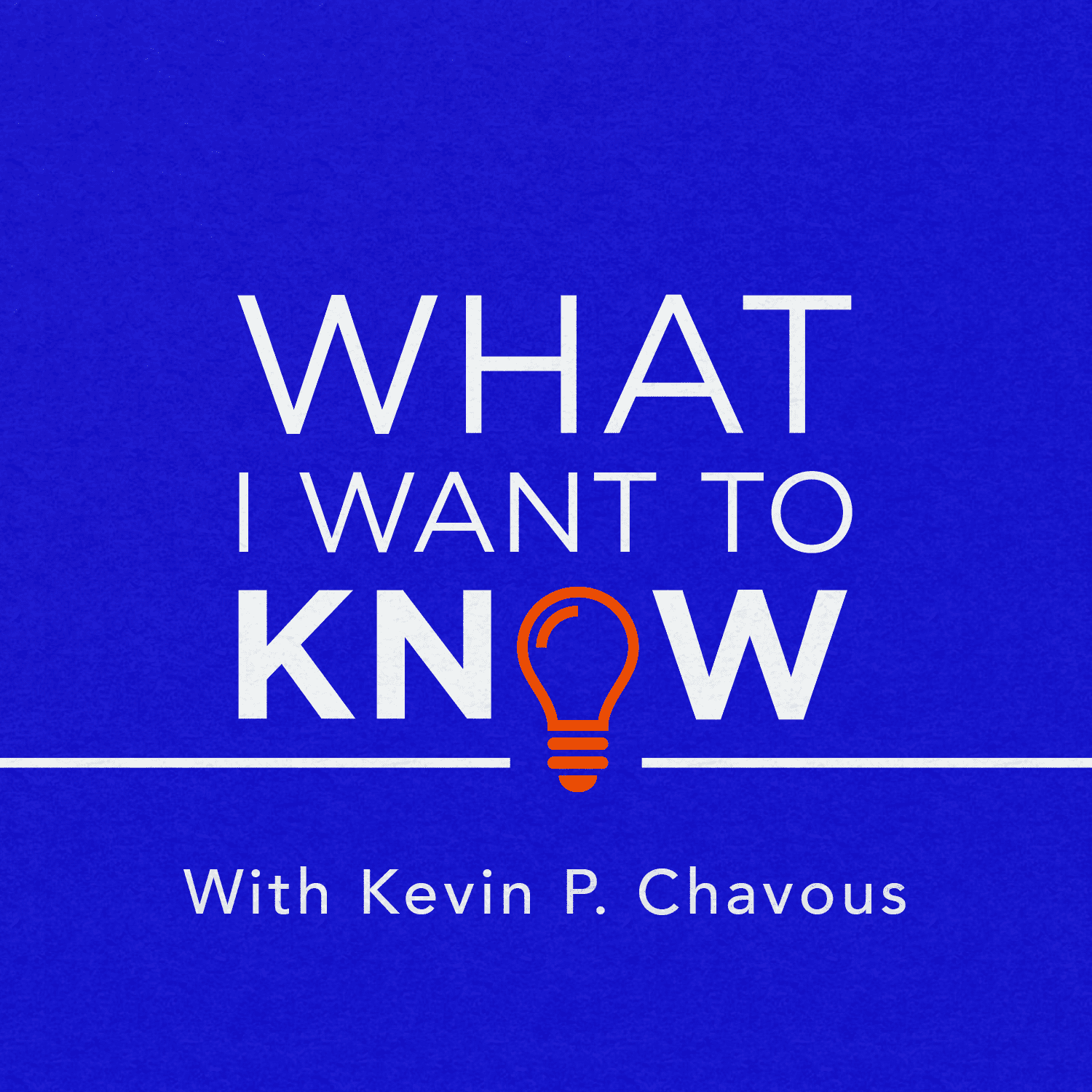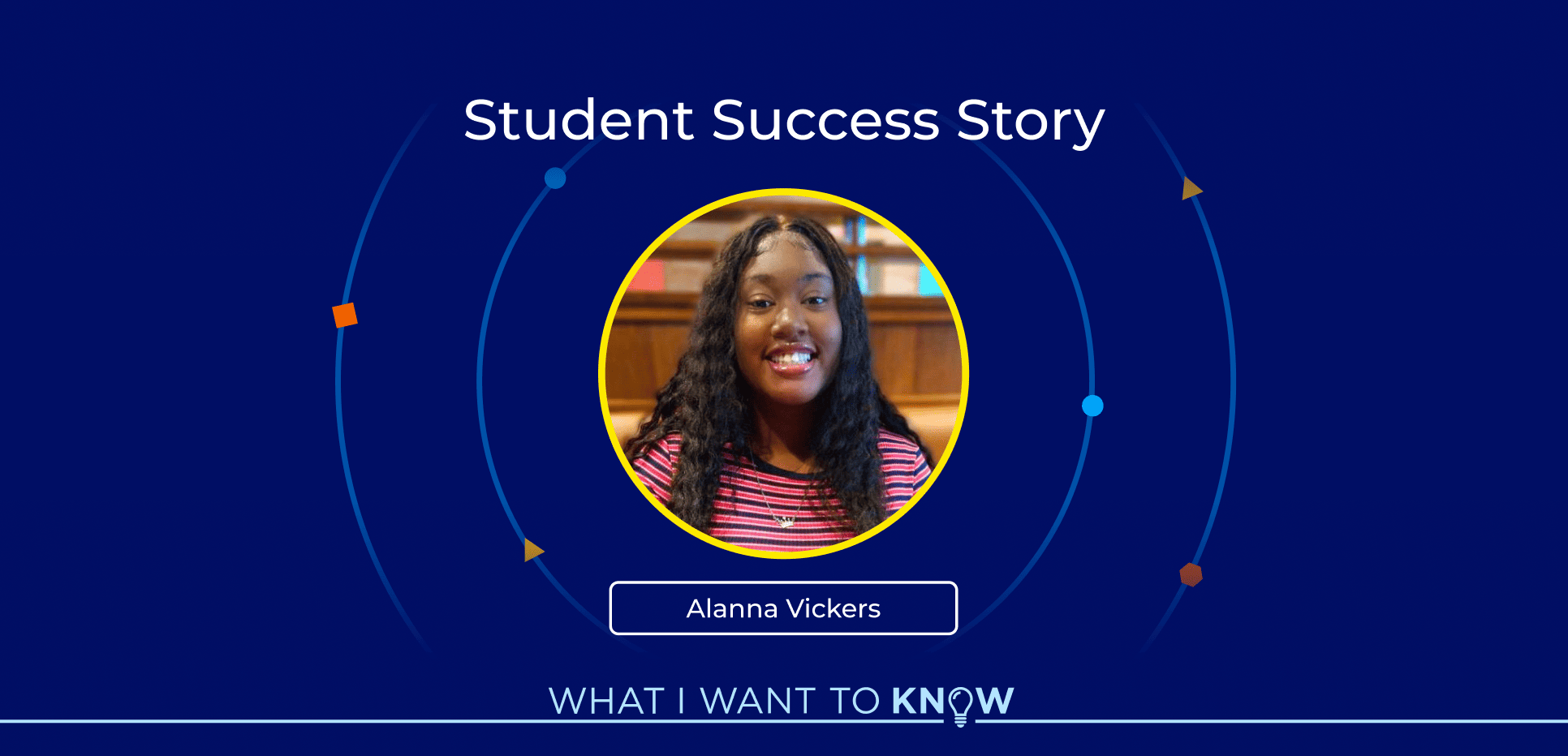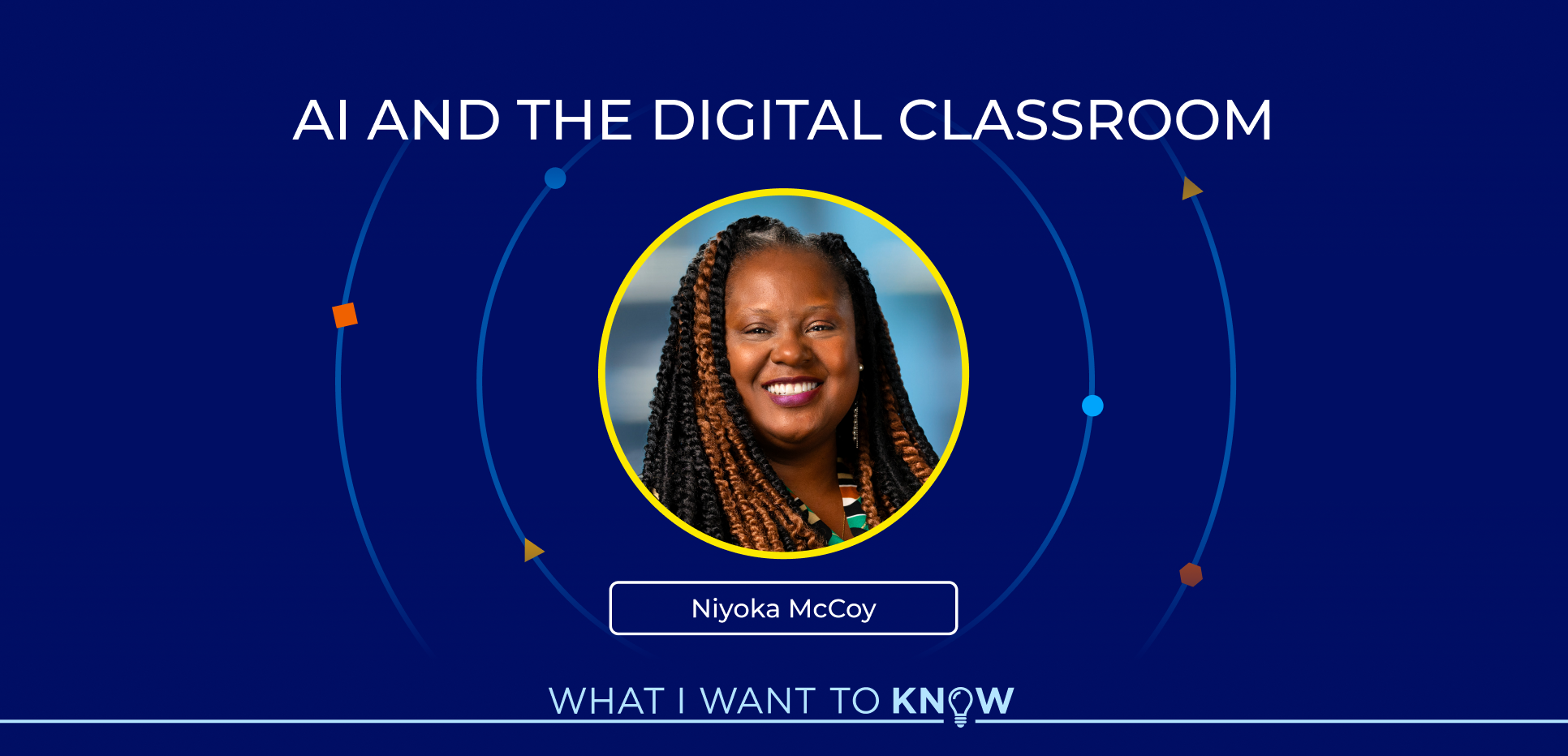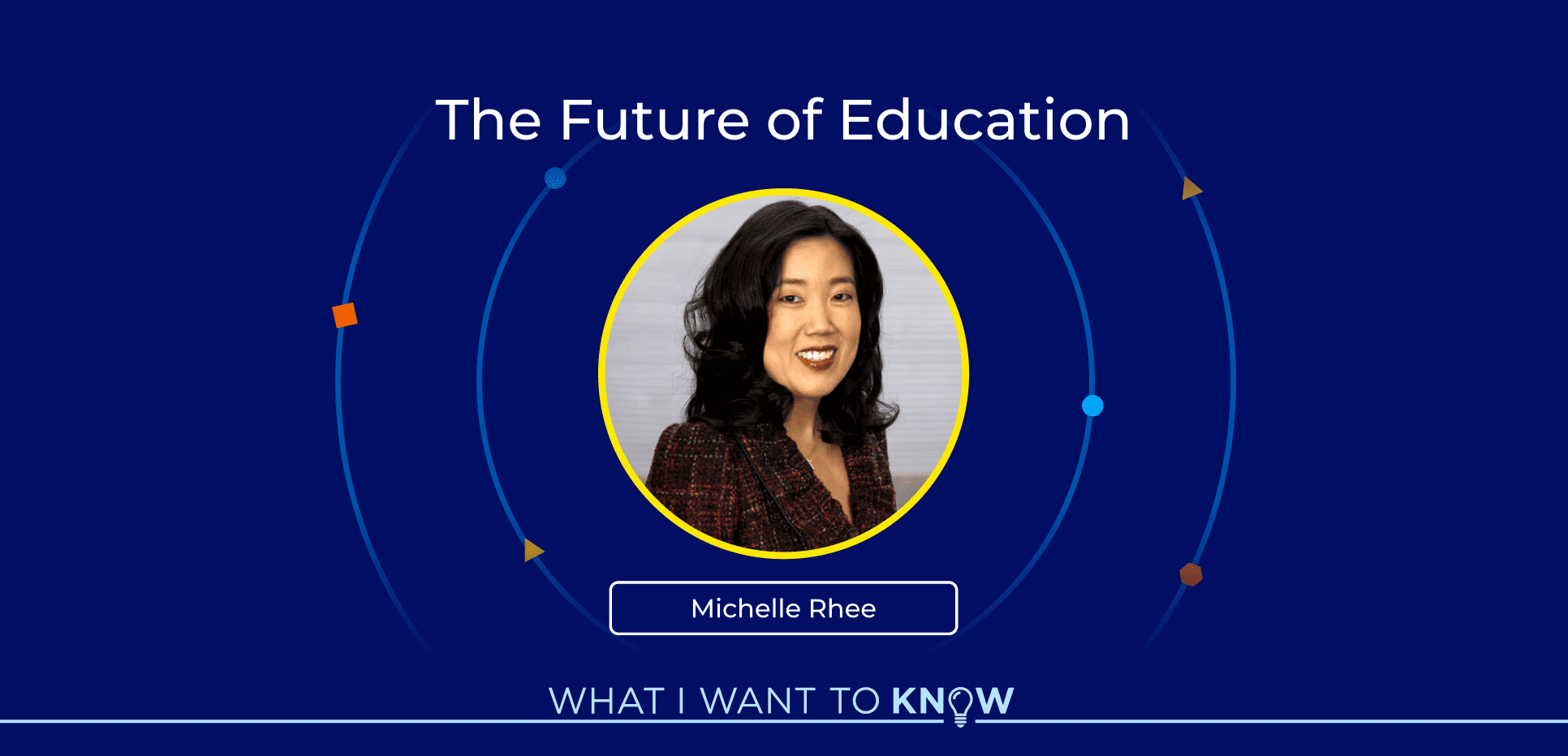Despite overwhelming data to the contrary, 25 percent of Americans are still unsure that climate change is real. Could that be because only 42 percent of schools make it part of their curriculum, and only 45 percent of parents talk about it at home? Given the nature of the threat, what more could we be doing to help kids understand how climate change will impact their future? How can we get to a place where the issue isn’t so politicized? And what role should schools play in helping our children develop a healthy respect for science and how it can enrich and protect our lives?
In this episode, Kevin looks to Dr. Marshall Shepherd, Distinguished Professor of Geography and Atmospheric Sciences at the University of Georgia, to talk about climate change and our schools’ role in fighting it.
Listen to the Full Audio
Listen on: Apple Podcast, Spotify
Transcript
Kevin: Despite overwhelming data to the contrary, 25% of Americans are still unsure that climate change is real. Could that be because only 42% of schools make it part of their curriculum and only 45% of parents talk about it at home? Given the nature of the threat, what more could we be doing to help kids understand how climate change will impact their future? How can we get to a place where the issue isn’t so politicized, and what roles should schools play in helping our children develop a healthy respect for science and the ways that can enrich and protect our lives? This is “What I Want To Know.”
Kevin: And today I’m joined by Dr. Marshall Shepherd to find out. Dr. J. Marshall Shepherd is an expert in weather and climate. He’s a professor of geography and atmospheric sciences at the University of Georgia and the host of the Weather Channel show, “Weather Geeks.” In 2013, he served as the president of the American Meteorological Society, and in 2021, he was elected to the National Academy of the Sciences, the National Academy of Engineering, and the American Academy of Arts and Sciences, making him only the second person to be elected to all three in the same year. He is with us today to talk about climate change and the role our school should play in fighting it. Marshall, welcome to the show.
Dr. Shepherd: Thank you for having me.
Kevin: So, Marshall, you are one of the world’s leading meteorologists, but your career in meteorology, as I understand, really started by accident. Go back to that sixth-grade science project.
Dr. Shepherd: I was that kid that was in the yard catching insects and bees, and was just fascinated by things going on around me, but was stung by a honeybee and found that I was deathly highly allergic to bees. And this was pre-EpiPen days when it… And so, I almost died. I mean, I really couldn’t breathe. I had to go to the hospital. So, sixth-grade science project was rolling around and I needed a plan B, pun intended, because I didn’t wanna do my project on honeybees anymore. And so, I was also interested in the weather and started making weather instruments from things around the house. I grew up with a single-parent mom who was a teacher and educator, former principal. And so, you know, I just started tinkering around the house and so, developed a little weather model for my community and ended up winning the sixth-grade science fair at the county, and I guess, district level, whatever they called it at the time. The title of that was, “Can a sixth-grader predict the weather?” And from that point on, I was bitten by the weather bug, as they say.
Kevin: But what made the science of weather so exciting for you?
Dr. Shepherd: At that point, I knew it was just the how and why of weather. I just wanted to know why a hurricane happened or why some storms produced a tornado and others didn’t or why some rainstorms are produced, why other times it’s snowing. And so, I was always more on the how and why side. And so, you know, ultimately, my career took me in the research and development direction. You know, after I did my master’s in Ph.D. at FSU, I worked for NASA for many years up in the DC area, Goddard Space Flight Center. I know you’re familiar with the DC area, NASA Goddard out in Greenbelt. So, I was there working on very large space missions to study earth’s climate and weather from the vantage point of space. So, you know, as the director of University of Georgia’s atmospheric sciences program, I certainly have students in my program that go off to do prediction, but meteorology is a very broad field, as is climate science. And so, it just touches every aspect of our lives, Kevin.
Kevin: And I think you’ve talked about climate literacy where the language we use to engage people today, you know, so much, and I think they’ve increased, but 140 words on Twitter and everything is truncated, it’s… I don’t wanna sound like, you know, an old head, but it’s superficial, you know, people abbreviate their knowledge and the research is sparse oftentimes. Again, I don’t wanna be overly global, but this idea of the words we use to convey what’s really going on, how important is that?
Dr. Shepherd: It’s extremely important. Climate literacy and sort of lack of literacy, in general, has been a big challenge for us. I mean, you know, there’s simple things that, again, are just shaped by people’s understanding. For example, there are people that think that it can’t get cold in deserts because they perceive deserts as being hot, but it gets very cold at deserts in the evening. There are people that, like when we have 30-degree weather in winter, will tweet me and say, “Hey, Dr. Shepherd, what happened to global warming? It’s 35 degrees outside and I got 10 inches of global warming in my yard.” The fact is it’s just winter time, and we’ll have wintertime in a climate-change environment. And so, I often have this thing that I’ll say, “Which is weather is your mood and climate is your personality.” So, today’s weather tells us nothing about climate change in the same way that our mood today doesn’t tell us much about our personality.
So, I try to use little analogies and things like that to kind of disarm or make it less complex because the atmosphere and our weather and climate system is very complex. It’s governed by fluid dynamics equations. That’s why my students at the university have to take calculus two and three, and physics, and partial differential equations, but people don’t have that level of understanding of weather and climate. They just know what they see outside or they know what they experience and then they bring it down to that level, and it’s often misrepresented.
Kevin: I do wanna go back to the challenge, you know, how dire is the threat? And if you could, could you lay out sort of the reality of where we are from a scientific point of view?
Dr. Shepherd: The Paris Agreement says we need to keep warming at two degrees Celsius or less, and preferably 1.5 degrees. That’s Celsius. We don’t speak Celsius in this country. We speak Fahrenheit. So, we’re really talking about keeping it at under three degrees of Fahrenheit of warming. We’re rapidly approaching that, and the earth is responding. Sea level rise is ahead of pace of where we thought it would be decades ago. We’re seeing extremes in weather. We’re seeing rapid intensifying hurricanes. I mean, you go to bed to a cat-1 hurricane, 24 hours later on the coast of New Orleans, you have a cat-4, cat-5 hurricane. We’re seeing more intense heat waves. When it rains, it’s raining with greater intensity. If you look at the Hurricane Ida remnants in New York last year, three inches of rainfall in an hour in Central Park.
That’s exactly the type of rain intensities we predicted because of climate change because the atmosphere has more water vapor available to it because it’s warmer, and so, these storm systems have more water to tap into, to fall out. And so, things that we are seeing, the reports are saying at time and time again in all aspects of the system are happening right before our eyes. But here’s what worries me. Not only is it happening before our eyes, it’s going to accelerate and not in a linear or slow fashion. I think a lot of the American public learned about exponential rates with this pandemic because we saw how it took off so rapidly in 2020. It wasn’t just a slow creep. It sort of went up like this. This is what we’re concerned about with climate change too because of this exponential increase in these feedbacks that we get, these changes that happen because we’re losing sea ice or because the ocean’s becoming fresher. And so, that changes ocean circulations which in turn changes our weather.
Kevin: Do you have a timeline on when that exponential impact could take place?
Dr. Shepherd: I think we’re certainly within 10 to 20 years from some really dire… I mean, we’re in some really bad situations right now, but, you know, here in Georgia, I’ve been a part of something called Draw Down Georgia where we’ve been trying to look at ways of drawing down our carbon emissions by 2030. I published a paper with one of my former doctoral students that looked at what we need to do, and who’s at most risk by the year 2040. So, I think we’re in a 0 to 20-year timeframe to really get our hands around this. I think we can do it. I think the technology is there. I think moving to as far away from fossil fuel-based economy as possible will be part of those solutions, but also, technology solutions. But I think the 0 to 25-year timeframe from this point forward is critical because we’re already seeing these influences, and as I mentioned, we’ll start to see them amplify in a very rapid pace in the next zero to 20 years.
Kevin: And you would agree, wouldn’t you, that the good news is that a little bit can go a long way? And one of the things that we’ve seen is some of the intervention that’s taken place, some of the reductions in fossil fuels, some of the conservationist efforts have netted some positive results and the Paris Accord, you know, endeavors to do more, but what else should we be doing?
Dr. Shepherd: Yeah. The Paris Accord is a start. We can all change our light bulbs, and buy electric cars, and eat less beef and those things, but those are incremental solutions. We’ll have to have large-scale national and international policy change, and that’s where the Paris Accord is about. I think we need a national policy. I think we saw a recent infrastructure bill that had quite a few climate-related things in it, like more charging stations, or moving school buses from diesel and fossil fuels to electric or hybrids. And so, these things are all important. We need a very climate literate, climate-focused electorate and policymakers no matter which side… Again, I don’t care whether you’re Republican, or a Democrat, or libertarian, or independent. We all live on this planet. The ice doesn’t care how you voted.
It doesn’t care if you’re red or blue, it just melts. And so, we have to have dramatic policies that reduce carbon emissions, that’s called mitigation. We also will have to have some adaptation strategies as well, this idea that some things are just already in motion and are going to happen. And so, we need to have policies that retrofit public housing that may not have adequate air conditioning or use drought-resistant seating in places where drought is intensifying or perhaps seawall systems or levies where we know hurricanes are intensified. Those are adaptation strategies. The last on the table, this is kind of our last-ditch effort. I don’t think we need to go there yet, is something called geoengineering. That’s where we engineer the atmosphere, or put up space mirrors, or simulate volcanic eruptions. These have been proposed as last-ditch efforts. I don’t think we need to go there yet, but we need to keep them on the table at least.
Kevin: So, Marshall, let’s talk about education in schools. In the introduction, I alluded to the fact that only 42% of our schools even talk about climate change as part of their regular curriculum structure. And polls suggest that 45% of parents talk about the issue at home with their children. And while young people seem to be at the forefront of this issue once they become knowledgeable and engaged, shouldn’t there be a more robust discussion around these issues in education circles? And what should we do about that?
Dr. Shepherd: Well, that’s one of the reasons I was… You know, I think the next generation education standards, we’re trying to sort of standardize some of that. And I think that we definitely have to sort of have this in our sort of discussions of education. I think that the National Council of Science Educators as a leading organization has offered forth solutions for making sure that we have a scientifically rigorous peer-reviewed science-based curriculum on climate and environment. You know, there are… I mean, I remember… There are lots of information out there in climate, and some of it looks credible, but it’s not, it hasn’t been peer-reviewed. It’s what we call in science world gray literature. It’s just something that people are putting out there for their opinions or from their ideological perspectives. And so, you know, yeah, I think we need sound sort of climate environmental engagement within our schools irrespective of what they are.
I think we need hands-on learning. I think students need to engage. And, you know, one of the reasons I got so involved in this is because, as I said, I was always out in a creek somewhere catching minnows or catching bees. So, one of the things I’ve seen is that, you know, students, particularly African-American, and to some degree women, and also other students of color, have not been as engaged in what we call STEM, science, technology, education, and math because they see it as just a bunch of equations or a bunch of theories that they’re not interested in. We have to make this engaging and accessible. And that means climate discussions as well and weather. It’s not just the curriculum, but we have to understand how proliferation of poison ivy here in Georgia is related to climate change. And we have to understand how… You mentioned Miami. Sea level rise means more saltwater intrusion into the drinking water supply. And so, students in those communities can understand how it directly impacts their lives. That’s what we need as a part of our education strategy on this topic.
Kevin: And one thing that I’ve noticed in some of the schools that we’ve run at Stride is that one way to engage those students that otherwise look at math, science, and STEM as something boring or equations is artificial intelligence, virtual reality, you know, the gamification, things where they can be hands-on in seeing that impact. There’s a visual aspect to this that is striking that usually captures the attention of children.
Dr. Shepherd: I actually developed some strategies at the University of Georgia through some seed grant funding in our university to explore ways to teach climate, weather and geographical concepts using Minecraft. And we found that it could be quite effective. And so, I agree, I mean, gamification or just meeting students where they are on some of these topics or just making it accessible will have the same effect as making climate change accessible to adults. Most people sort of see climate change as this far off thing that doesn’t affect them because they think it’s about a polar bear when, in fact, their grocery prices, or their fuel supply, or the bridge they’re driving across, or their child’s healthcare, or their public health is very much tied to climate change today. But we have not been able to sort of connect those dots for people.
Every time there’s a hurricane out on the Gulf of Mexico, they evacuate those oil rigs out in the Gulf, and guess what happens the next week or two? Fuel prices spike and you’re paying more at the pump. People don’t make those connections. When Hurricane Michael came through Georgia in 2018, it destroyed the peanut, and poultry, and pecan crop. Well, people buy in cotton, people buy cotton t-shirts, they buy peanut butter. So, they’re paying more for those things. So, we have to make things accessible with people, but then when we come down in the education system, we have to equally make things accessible and relevant to these students.
Kevin: So, I wanna talk to you, Marshall, about the elephant in the room, politics. And I know that, you know, there’s no red or blue way to fix this problem. It is an American way and a scientific way, and still, the politics, when you talk about schools today, is full of examples where the parent voice is real, it is needed, it’s important, but you have, because of politics, parents getting arrested at school board meetings fighting over mask requirements, or parents fighting over critical race theory. Don’t you see climate change as potentially taking on that kind of dynamic when you try to introduce it in schools?
Dr. Shepherd: I do worry that issues of climate change might be framed as some kind of contentious issue when it’s not, it’s just science.
Kevin: Yes. That’s the point I’m getting at.
Dr. Shepherd: I think that’s the point you’re making. This is just science. It’s like saying, “Wait a minute, we can’t teach that if you go up to the top of your house, you’re gonna fall off because the theory of gravity is controversial.” It’s not controversial. You’re gonna fall if you jump. And that’s what climate… I mean, the sun rises tomorrow. That’s just basic physics of the earth. And climate’s the same way. So, I think we have to deemphasize this idea of climate being a political topic. I think there’s some legitimate concerns on both sides of the issue, perhaps, and some of these other things that you brought up, but climate is just so far away from most things. I mean, it is not a matter of choice and all this stuff, climate is going to change, it is changing, and we’ve got to act on it.
Kevin: Yeah. And that’s fair enough. And I think that for the work you’re doing in engaging with folks who are developing curriculums, who are talking about ways to address this with schools, I will continue to urge you to address it on that level because not talking about it is equally bad because knowledge and information are our power.
Dr. Shepherd: Oh, absolutely. Yeah. It’s not even a matter of talking about it. It is the fundamental… Our kids will inherit this mess more so than we will. And so, they’re the ones that will probably will be the ones that will really help us get out of it. And so, they have to understand the science, they have to understand the solutions and the technical spaces we need to get there. And so, I mean, it’s just science, just like physics, and chemistry, and biology, and everything else.
Kevin: So, Marshall, I have one more question. This is what I really wanna know. Why is it important for schools to engage the next generation on this issue of climate change?
Dr. Shepherd: It’s their planet. And, again, as we’ve talked about over the next to several decades, is when we’re gonna see the amplification of what is already facing us. I think people finally with the pandemic got a sense of, you know, you know, experts in that area had been warning about this mass pandemic that’s out there that would impact people and have effects and have, you know, increases on very short time scales. I think people kind of see, “Oh, okay. Those scientists kind of knew what they were talking about.” Well, we’ve been sort of saying the same thing about climate for a while, but the problem with climate change is, unlike the pandemic, which I think will wane in a year or two, I mean, it’s more episodic, climate change is a generational problem. It will not just sort of go away after a year, or two, or three. We’re talking sustained, which has impacts on our economy, national security, healthcare, and so forth.
And so, children today, someone sitting in an elementary school classroom or a high school classroom, like my two kids are, when they’re my age, I shudder to think about what type of hurricanes they’re gonna be facing or how much sea level has encroached into Florida now. Will even some parts of Miami even, you know, be there? I mean, that’s a little bit extreme, but some aspects of it. So, they have to understand the challenges because they’re the next generation of scientists, engineers, policymakers, city planners, and so forth that will have to address this topic.
Kevin: Marshall Shepherd, thank you for all you do, and thank you for joining us on “What I Want To Know.”
Dr. Shepherd: Thank you for having me, Kevin.
Kevin: Thanks for your, “What I Want To Know.” Be sure to follow and subscribe to the show on Apple Podcast, Spotify, or your favorite podcast app. And don’t forget to write a review too. Explore other episodes and dive into our discussions on the future of education. I also encourage you to join the conversation and let me know what you wanna know using #WIWTK on social media. That’s #WIWTK on social media. For more information on Stride, visit stridelearning.com. I’m your host, Kevin P. Chavous. Thank you for joining “What I Want To Know.”
Meet Dr. Shepherd
Dr. J. Marshall Shepherd is an expert in weather and climate. He is a Professor of Geography and Atmospheric Sciences at the University of Georgia and the host of The Weather Channel’s show Weather Geeks. In 2013, he served as the President of the American Meteorological Society. And in 2021, he was elected to the National Academy of Sciences, the National Academy of Engineering, and the American Academy of Arts and Sciences—making him only the second person to be elected to all three in the same year.







